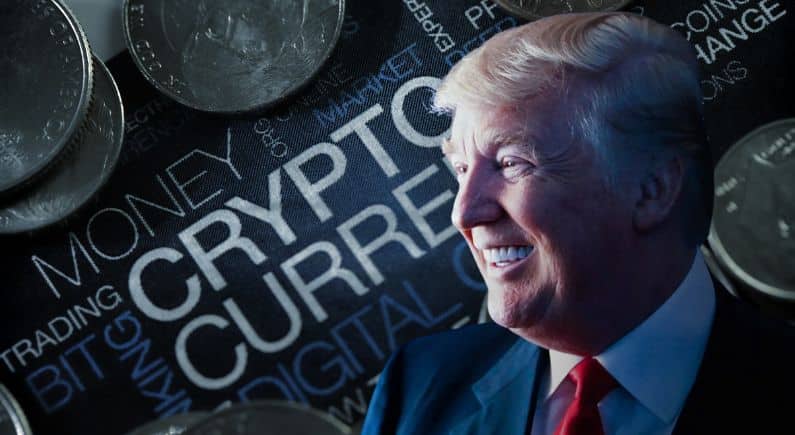Top 15 Central Banks taking on digital currencies

Central Banks across the world have been exploring the possibility of implementing a digital currency. Which countries may follow China in launching their own digital currency?
A digital currency can provide a safer financial environment as it will enable individuals, private companies and a number of financial institutions to settle directly in central bank money rather than through bank deposits.
Therefore, through digital currencies, there will be a reduction in liquidity concentration as well as a reduction of credit risk in payment systems.
This has resulted in a number of countries actually developing their own digital currency while other countries are in the process of or are exploring/explored the possibility of implementing a digital currency.
5. China – Digital Yuan
The People’s Bank of China has developed the digital yuan, which is a central bank digital currency which aims to replace a portion of paper cash in circulation. One of the purposes of the digital yuan is to increase competition in China’s mobile payments market which is currently dominated by Alipay and WeChat Pay.
China is already very advanced in cashless payments and the digital yuan will definitely fasten the process. It was also announced that the digital currency will be legal tender and no interest will be paid on it.
How does it work?
The People’s Bank of China will distribute the digital currency to commercial banks. These banks will then take on the responsibility of distributing it to consumers through services such as exchanging coins and cash for digital yuan.
Many economists also believe that eCNY will make China’s currency compete with the US dollar since it will be able to move with less restrictions and barriers
China’s creation of the digital yuan, which was in the works since 2014, is a first in major economy and could possibly set off a domino effect with a number of other major countries ready to develop their own digital currency.
4. Senegal – eCFA
Senegal’s digital currency, called eCFA, launched back in 2016. eCFA was introduced to co-exist as a legal tender alongside its recognised currency – CFA Franc.
The launch of this virtual currency was carried out through a collaboration between the Banque Régionale de Marchés (BRM) and eCurrency Mint Limited. Eventually, the BRM launched the eCFA in compliance with regulations of the Banque Centrale des Etats de l’Afrique de l’Ouest (BCEAO) and the Central Bank of West African Economic and Monetary Union (WAEMU).
The eCFA is completely controlled by the Central Bank since they also control the production through a digital currency production engine which is meant to be kept offline.
3. Singapore – Project Ubin
Singapore is a leading nation in research into central bank digital currencies through Project Ubin. Singapore is working closely with Shanghai through a collaboration between the Monetary Authority of Singapore and the People’s Bank of China for developing digital currencies.
Although Singapore does not have an actual digital currency, the aim of Project Ubin is to reduce cross border payment costs, settlement speed and increase security. The initiative was launched back in 2016 and Project Ubin’s prototype has been validated through workshops with more than 40 financial and non-financial organisations.
Project Ubin’s uses includes a fast and cost-effective cross border transactions, foreign exchange and smart contracts for trading. It has huge potential for collaboration with more central banks to build a cross-border payments networks.
2. Venezuela – Petro
Petro is a cryptocurrency that was launched by the government of Venezuela. However, it does not seem like it is being used as an actual currency. The purpose of the Venezuelan government issuing Petro was to supplement Venezuela’s currency by backing the cryptocurrency on oil and mineral reserves while also acting as a way to go around U.S sanctions.
However, last year President Maduro stated that he wants the virtual currency to be widely used as a form of payment by locals, even though there is a lack of education on the way it is used. Maduro also decreed that airlines flying from Caracas must pay fuel through the cryptocurrency.
1. UAE and Saudi Arabia – Aber
The two countries, through the Saudi Central Bank (SAMA) and the Central Bank of the United Arab Emirates (CBUAE), collaborated with each other to launch project Aber.
This project was launched to determine whether DLT could enable cross border payments between these two countries and whether it would reduce time of transfers and minimise costs between banks.
The new digital currency ‘Aber’ forges a closer financial relationship between the two. SAMA and the CBUAE have released the final results of the pilot project which seem positive as the findings were consistent with the results of other pilot programs conducted by other central banks.
Countries that have launched Central Bank Digital Currencies (CBDC) pilot programs
10. United States of America
After China announced their own digital currency, the US Federal Reserve is now planning its own digital dollar prototype.
According to the Federal Reserve Chairman, Jerome Powell, the US Central bank is exploring possibilities to launch a digital dollar.
Powell announced this during an event organised by the Bank for International Settlements (BIS). Two prototypes of the digital dollar are nearing completion which were developed by officials at the Federal Reserve Bank of Boston and the Massachusetts Institute of Technology (MIT).
Cunha (pictured) added that once the prototype is released, others will be able to build on its foundations. However, there are still a number of issues that need to be addressed by the Central Bank, Treasury and Congress for this project.
The issues outlined by Cunha are:
- If the Federal Reserve Bank should host customer accounts
- Whether or not to allow anonymity
- Cyberattack consumer protection / Transaction errors
9. UK
- Bank of England is exploring the possibility of a digital currency
- Launched a discussion paper in March 2020
- Intends on engaging with stakeholders on the benefits, risks and practicalities of introducing a CBDC
8. Japan
- Launched Central Bank Digital Currency testing on Monday
- First phase consists of bank focused experiments on the basic function for CBDCs
- Such as – payment tools such as issuance and distribution
- Overall goal – test the technical feasibility of the core functions that a CBDC would require
- Will only move forward with feedback from the Japanese public
7. Germany
Authorities in Germany are developing technology that allows investors to buy and sell securities on the blockchain and in exchange receive central bank money.
The main aim of this tech development is to bridge the gap between the two.
Several institutions both public and private have been experimenting with a distributed ledger technology (DLT), known to be behind powering several cryptocurrencies including bitcoin, for finalising trades in official money.
Budesbank partnered with Deutsche Borse and the German Govt. debt agency for this new venture and stated on Wednesday that this new solution is the first of its kind, allowing people to sell securities on blockchain and receive their proceeds in their central bank account.
There is expectation that this newly found technology will be made available to the entire euro zone, before the European Central Bank’s digital euro is launched.
6. Sweden
- Concluded first phase for a Central Bank Digital Currency called e-Krona
- Sweden’s Central Bank, Riksbank, is looping in banks to test the digital currency
- Collaborated with Accenture and R3, Accenture will continue working with Riksbank in phase 2
- Riksbank believes the decline in use of physical cash is a potential problem
- CBDC will provide an increase in efficiency, financial inclusion and effectiveness of monetary incentives
- Little information has been shared by Riksbank
- Riksbank states: It can not be classed as a crypto asset as it “has a state, a trusted actor, as issuer and that the state guarantees the value of the means of payment.”
5. Canada
- Bank of Canada has worked towards a public central bank digital currency to replace cash
- Research on public-focused currency is still ongoing
- Bank of Canada successfully completed a test payment with the Singapore Central Bank, using CBDC
- COVID-19 has accelerated Canada’s position on CBDCs
- However, digital loonie’s are not a “forgone conclusion”
4. Australia
- The Australian Central Bank has partnered with the Commonwealth Bank, National Australia Bank, Perpetual and ConsenSys to explore CBDC using DLT
- RBA state that the project will explore other features such as programmability and automation features of a tokenized CBDC and financial assets
- RBA Assistant Governor, Michele Bullock:
“We are aiming to explore the implications of a CBDC for efficiency, risk management and innovation in wholesale financial market transactions. We are pleased to be collaborating with industry partners to explore if there is a future role for a wholesale CBDC in the Australian payments system.”
3. Israel
- Explored CBDC’s back in 2018
- Concluded that the bank should not issue a CBDC in the future but should monitor the topic continuously.
2. Russia
- The Central Bank of Russia aims to launch Digital Ruble prototype later this year
- Majority of feedback (83%) support digital ruble
- Received backlash from Russian regulators and local financial industry players due to its centralisation
- Late 2021 could potentially see the bank pilot the system for testing and public feedback
- The decision on whether to launch or not will then be taken
1. European Central Bank
- Published a paper last year on CBDCs
- Explored how CBDC could be designed for payments and discourage store of value
- Paper suggests two-tier system (first tier = payments, second tier = store of value)
- Paper concludes that the main driver behind CBDC is efficient retail payments, rejects CBDC as a store value
About AIBC Dubai:
AIBC UAE will take place on the 25th to 26th May, 2021, in the emirate of Dubai. The event will bring together key brands and individuals from the converging sectors of AI, blockchain, IoT, Quantum Tech to discuss and shape the future of emerging tech.
It is one of the leading events globally for blockchain, AI, crypto, and other emerging technologies, and gathers together an elite selection of delegates, policymakers and thought leaders from across the globe. Such international recognition has helped propel AIBC Summit become a favourite on the world circuit for emerging tech conferences and expos.






